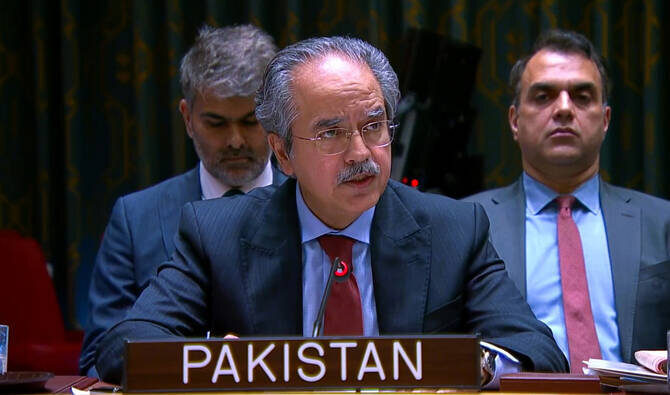Pakistan sees UNSC snapback as setback to dialogue, expert Says
Dr. Dost Barrech examines legal, political, and economic challenges posed by UN sanctions on Iran

TEHRAN- As snapback sanctions under UN Security Council Resolution 2231 are reactivated, the impact on regional diplomacy, trade, and security extends well beyond Iran. For Pakistan—a neighbor closely connected to Iran through geography, commerce, and security—the stakes could be somewhat significant.
Situated at the crossroads of South Asia, West Asia, and Central Asia, Pakistan must navigate its relationships with global powers like China, Russia, and the U.S. while maintaining vital ties with Tehran. The Pakistani province of Balochestan, where Iran-Pakistan relations deeply affect local security and trade, plays a crucial role in this dynamic.
To explore Pakistan’s legal and strategic views on the sanctions, the Tehran Times spoke with Dr. Dost Mohammad Barrech, an expert in regional geopolitics at the University of Balochestan and former Research Associate at ISSI. Dr. Barrech provides insights into Islamabad’s stance, its alliances, and the wider regional implications of renewed sanctions on Iran.
In this interview, Dr. Barrech offers a critical analysis of Pakistan’s diplomatic stance, the influence of its key allies, and the broader consequences of renewed sanctions on Iran for regional peace and economic development.
Below is the full text of the interview:
Considering Pakistan’s preference for diplomacy rather than pressure in dealing with Iran’s nuclear program, what is Islamabad’s stance on the reactivation of snapback sanctions under UNSC Resolution 2231?
Pakistan has already voted in favor of a UNSC resolution to stop reimposition of sanctions on Iran. Islamabad believes diplomacy and intimidation do not go together and the region has already facing multiple crises and such destabilization actions will further cause chaos.
Ambassador Asim Iftikhar Ahmad, permanent representative of Pakistan to the UN states that “As an immediate neighbour and friend of Iran, we do not favour any action which risks destabilizing a region that is already mired in multiple crises. This region cannot afford further tensions," he said. Pakistan knows that Iran is an important neighbor any kind of destabilization would have spillover effects on the region.
Though Trump is obsessed with getting Nobel Prize for peace believing that he has resolved seven disputes across world. Then why does he choose coercion over diplomacy vis-à-vis Iran?
In what ways do Pakistan’s close ties with China and Russia shape its views on the snapback sanctions, especially when compared to its relationships with Western countries?
I reckon Pakistan is pursuing a hedging strategy by maintaining balanced approach to have strategic ties with China, Russia and United States. It is a rational approach in the 21st century to maintain hedging strategy by not keeping all eggs in the basket of one party. In the evolving regional politics Pakistan has appeared as a crucial player due to its position as a flexible state. Politics is the art of navigating possibilities with flexibility.
Though Pakistan, China and Russia share converging interests regarding re-imposition of snapback sanctions under UNSC Resolution 2231, Pakistan can also not alienate Washington. It is very delicate position for Pakistan: on one hand, the country has a strategic relation with the U.S., on the other hand, Iran is immediate and important neighbor.
What impact does the reinstatement of snapback sanctions have on Pakistan-Iran relations, particularly regarding trade, border security, and broader regional cooperation?
Pakistan and Iran annual bilateral trade is around $ 2 billion. Both parties in 2024 promised that their bilateral trade would reach to $10 billion. It is unlikely to accomplish $ 10 billion figure after the snapback sanctions and constraining financial transactions between Pakistan and Iran.
Halting either legal or illegal trade will have a great deal of implication particularly for the Pakistani province of Balochestan. Nearly 70 percent of exchanges here is dependent on Iran’s trade. Sanctions on Iran might squeeze livelihood of the residents of Balochestan, which is likely to benefit insurgents to enhance their recruitment.
Disgruntled youth will become easy prey for them causing security challenges for Pakistan and Iran. The snapback sanctions as far as the regional politics is concerned will further push Iran to the wall and accelerating Middle East tension by fueling Iran’s nuclear defiance potentially withdrawing from NPT and escalating proxy war with Israel.
How does Pakistan legally interpret UNSC Resolution 2231, and what significance does international law hold in shaping its diplomatic response to the snapback sanctions?
The legal stance of Pakistan has already been articulated by Ambassador Asim Iftikhar Ahmed who regarded the snapback as an “obstacle to dialogue” that will risk escalating regional tensions. The Pakistan’s vote against snapback demonstrates its firm belief that resolution 2231 spirit favors negotiation over coercion.
How does Pakistan use forums like the Shanghai Cooperation Organization and the Organization of Islamic Cooperation to promote its perspective on the snapback sanctions issue?
SCO and OIC multilateral forms are essential for Pakistan to promote diplomacy, Kashmir and Palestinian issues and regional connectivity. It remains to be seen how Pakistan will advocate its stance on snapback sanctions within above-mentioned forums.
I am making a big claim that Iran needs to reconsider its approach and seek to mend ties with the U.S. as it cannot afford to confront both the U.S. and Israel simultaneously.
Domestically, it is applicable to construct Israel an existential threat for Iran. However, internationally considering the U.S. a permanent enemy has proved counterproductive.
Iran appears to be the only country challenging the Western-led world order. The question remains: can an isolated and economically weak country sustain such a challenge against great power? To me states are dynamic, their foreign policies evolve in response to shifting regional and international political landscapes.
Leave a Comment